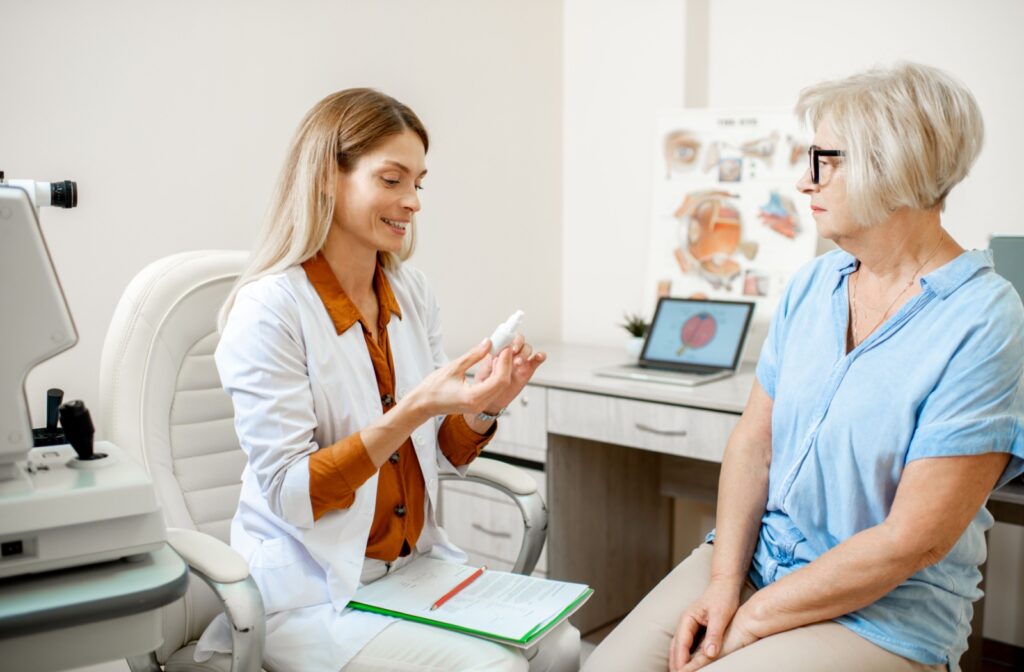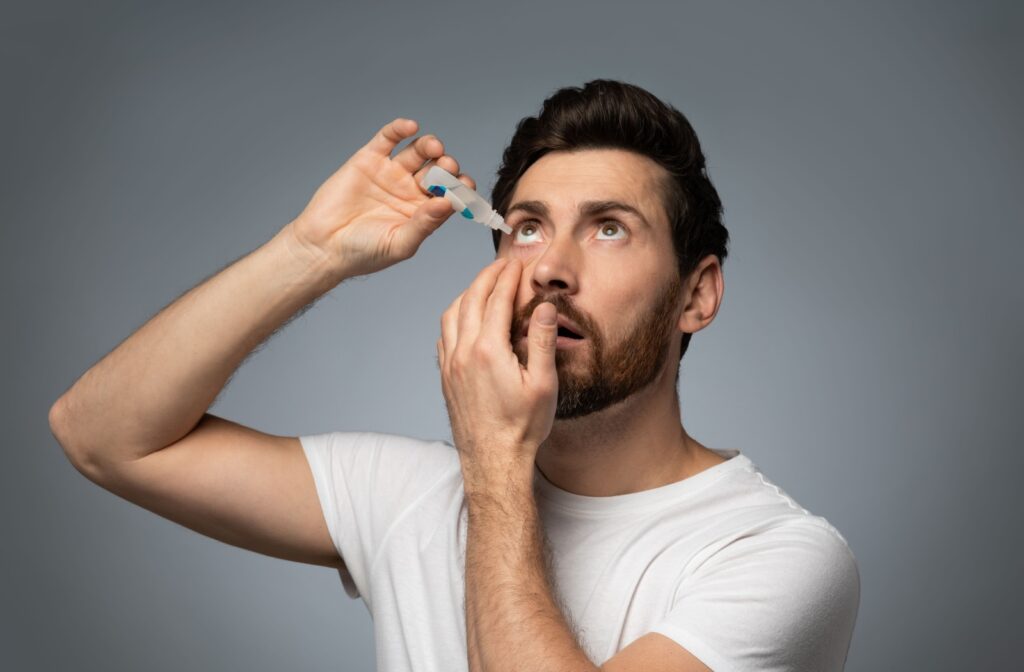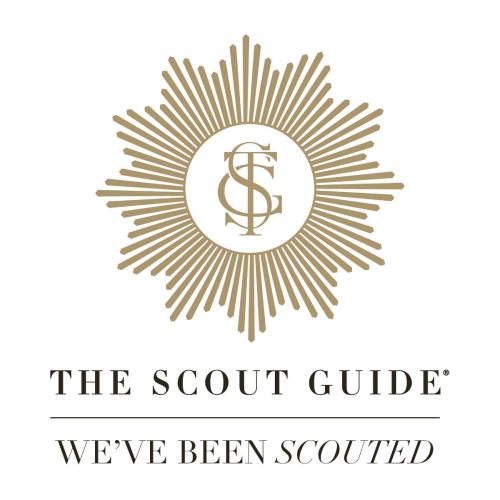When your eyes feel dry or a little irritated, nothing feels as soothing as artificial tears. Convenient and effective, these drops offer instant hydration and comfort, so it’s no surprise that people keep a bottle nearby just in case.
There’s no harm in using artificial tears daily; the key is staying responsible. The real problem is overusing eye drops. Overuse can lead to a cycle of ongoing dependency, irritation, or mask underlying conditions that require targeted treatments.
If you find yourself reaching for your eye drops too often, it might be time to visit your optometrist.
Eye Drops: A Brief Overview
Eye drops aren’t just one product—there are a variety of formulas and types, each made to target a specific eye concern.
Artificial tears are the most common drops that people reach for. This hydrating formula mimics your natural tears to help combat dryness. They’re typically the safest option for frequent use because they work with your body’s natural processes rather than against them.
Medicated eye drops include antihistamines for allergies, decongestants for redness, and prescription medications for conditions like glaucoma. Always follow instructions from your optometrist to avoid any complications or reactions.
Given that artificial tears aim to hydrate and soothe the eyes, it’s easy to get carried away. Thankfully, people are less likely to overlook instructions when medicated eye drops are involved, but staying responsible is still important.
Can You Use Eye Drops Every Day?
You can absolutely use eye drops every day as long as you stay responsible and use them only as needed.
Some people do benefit from using eye drops every day. If your eyes feel dry in the morning because of seasonal allergies or if your eyes feel tired after long hours of staring at a computer screen (thanks digital eye strain), reaching for artificial tears to soothe and hydrate your eyes shouldn’t be a problem.
The primary concern is that overusing eye drops—even over-the-counter ones—can pose a risk to your eyes.
The Risks of Overusing Eye Drops
Eye drops feel like a miracle solution because they instantly improve irritation. So, how can immediate relief be harmful? Here’s a closer at what happens when you overuse eye drops:
The Rebound Effect
Decongestant drops that promise to “get the red out” can actually make redness worse over time.
These drops work by constricting blood vessels in your eyes. However, with constant use, your eyes can become dependent. When you stop using your drops, the redness often returns worse than before—a condition called rebound redness. This encourage you to reach for them again.
A Cycle of Irritation
Artificial tears with preservatives keep bacteria out of the bottle for a longer shelf life. But preservatives can also irritate your eyes.
Some people develop a sensitivity to these preservatives, leading to burning, stinging, or increased redness—the exact symptoms they’re hoping to avoid in the first place. This encourages many people to reach for their drops again, leading to an ongoing cycle of irritation.
Masking Underlying Problems
Eye drops are soothing, but they aren’t a universal solution for irritation. Relying on them too often can mask underlying problems.
You might think stubborn redness and irritation would stem from dry eyes, but these symptoms can also arise from other issues, like pink eye or keratitis. Without proper management, these conditions can worsen and make your eye vulnerable.
If you’re experiencing continuous discomfort, set aside the eye drops and see your optometrist for an accurate diagnosis.

How to Use Eye Drops Safely Every Day
If you’re going to use eye drops daily, here’s how to do it safely:
- Choose the Right Type: For daily use, make the switch to preservative-free artificial tears. They’re gentler on your eyes, have a thicker formula, and are less likely to cause irritation with frequent use.
- Follow Proper Technique: Wash your hands before handling the bottle. Tilt your head back, pull down your lower eyelid to create a small pocket, and squeeze one drop into the pocket—not directly onto your eye. Avoid touching the tip of the bottle to your eye or eyelid.
- Follow the Recommended Frequency. Most preservative-free artificial tears can be used as needed, but start with what the package recommends.
- Pay Attention to Your Eyes’ Response: If you notice increased redness, irritation, or any unusual symptoms after starting daily eye drops, it’s time to reassess. Your eyes might be telling you that something isn’t right.
Supporting Your Eyes (Sans Eye Drops)
Eye drops are incredibly helpful, but they’re not the only solution for maintaining healthy, comfortable eyes. Simple lifestyle changes can make a significant difference in everyday comfort and lessen your need for liquid relief:
- Follow the 20-20-20 Rule: This is a game-changer if you spend long hours staring at digital screens. Every 20 minutes, look at something 20 feet away for at least 20 seconds. This gives your eyes a break and encourages natural blinking.
- Improve Your Environment: Use a humidifier in dry spaces, position yourself away from direct air conditioning or heating vents, and give your eyes a break from daily contact lens wear every once in a while.
- Stay Hydrated: Your overall hydration affects your tear production. Drinking enough water throughout the day supports a healthy tear film.
- Eat Eye-Healthy Foods: Omega-3 fatty acids found in fish, flaxseeds, and walnuts can support tear production.
Making the Right Choice for Your Eyes
When you use preservative-free artificial tears responsibly, safely, and as needed, there is no harm in using them every day. Daily use can be a part of a healthy eye care routine, especially if you have dry eyes or are battling seasonal allergies.
The problem stems from overusing eye drops, which can actually further irritate your eyes; a stark contrast to the relief you’re hoping for. If you find yourself reaching for your beloved eye drops far too often, it’s time to visit Pinnacle Eyecare. Let us help you get to the root of the problem; book an appointment with our team today.






